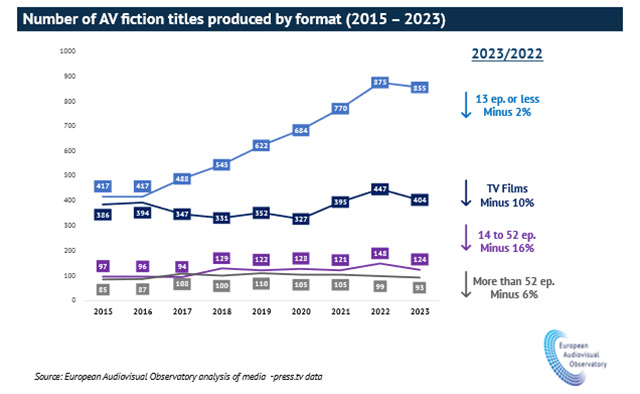Travel
Why Aussies sipping Aperol in the ‘Euro Summer’ sun may not get a warm welcome
It’s that time of year again when social media feeds become flooded with “Euro summer” holiday content.
Every winter, there’s a cohort of Australians who escape to the Mediterranean Sea, seeking an idyllic scene to sip Aperol spritz in the sun.
But, they may not all be getting a warm welcome.
Since pandemic travel restrictions eased, tourism has come surging back and Europe is copping an influx of visitors in record numbers.
And some locals aren’t happy about it.
Graffiti and stickers exclaiming, “Tourists go home!” and threats such as “We’ll spit in your beer” are becoming a common sight across major cities.
Anti-tourism protests are also spreading, with locals angered by “bad tourists”, short-term rentals and “the touristification of daily life”.
Experts say at this rate there’s no way tourism can be sustainable, and we need to re-think the way we travel so we’re not part of the problem.
A return to overseas travel
Australians are back on the move.
In 2023, nearly 10 million residents returned from a short-term trip overseas, an increase of over 4.7 million on the previous year, according to the Australian Bureau of Statistics (ABS).
June was a particularly high time to travel, with more Australians leaving the country in mid-last year than in December 2022.
Skyscanner Australia travel expert, Jarrod Kris, says there has been an increase in Australians searching for flights to European destinations.
Search volumes for European countries in 2023 were up by 28 per cent on the previous year, with Greece, France, Italy and Spain among the most popular.
Searches were also 16 per cent higher than pre-pandemic 2019, Mr Kris said.
Based on Skyscanner flight booking data, the most popular 2024 Euro summers destinations for Australians so far are:
- 1.Dublin
- 2.Manchester
- 3.Rome
- 4.Istanbul
- 5.Paris
- 6.Athens
- 7.London
Landing in an overtourism crisis
Many of these popular destinations are facing an “overtourism crisis”, Claudio Milano from the University of Barcelona’s department of social anthropology, said.
And it’s leading to a resurgence of “tourism-phobia”.
The term emerged around the 2008 financial crisis with locals blaming tourists for their deteriorating quality of life.
Now as crowds have come flooding back in record numbers after the pandemic reprieve, so too has social unrest and tourism rejection.
Especially as cities confront housing emergencies, masses of Airbnb lockboxes strewn down residential streets are a scathing sign of the times.
(Reuters: Borja Suarez)
Already Europe’s foreign tourist arrivals for 2024 have exceeded 2019 levels.
And summer is bringing two major sporting events to the continent — the Paris Olympics and the UEFA European Football Championship in Germany.
Tourism officials expect 15.3 million visitors to the French capital over the Olympics period.
Parisians have been staging protests and strikes, calling out the social impact the Games will have on their city, which is already the most-visited destination in the world.
Locals lash out
In recent weeks, tens of thousands of residents have also been taking to the streets in Athens, Venice, Barcelona and Spain’s Balearic Islands.
Last weekend, protesters occupied beaches frequented by tourists in Mallorca, after about 10,000 demonstrated the previous week under the banner #Mallorca no es ven — Mallorca is not for sale.
Smaller protests have been held in neighbouring Menorca and the notorious party island Ibiza.
And throughout April, more than 50,000 people from the small Spanish Canary Islands took part in demonstrations.
Freya Higgins-Desbiolles, a lecturer in tourism management at the University of South Australia, says it’s clear impacts of overtourism have reached new heights.
“The recent activism in the Canary Islands, where tens of thousands of people came out in a relatively small community, indicates just how angry people are,” she told the ABC.
Fake signs have been spotted at Spanish beaches warning tourists that there’s dangerous jellyfish and falling rocks.
Then small-print in Catalan reads “the problem isn’t a rockfall, it’s mass tourism”, according to local media reports.
There’s also been more confronting backlash with reports of rentals cars, bikes and tourist buses being vandalised or their tires slashed.
Tourists making life unlivable
Professor Milano says similar messages are being echoed by anti-tourism activists and movements across the board.
Locals are frustrated by cities being oversold and overcrowded with “capitalistic tourism”.
Short-term rentals are raising housing costs, taking over residential buildings, and pricing locals out of living in their own towns.
Javier Carbonell, a real estate agent in Mallorca, told Reuters over half of rental properties were used for holiday rentals and were not affordable for locals.
“We want less mass tourism and more sustainable tourism,” Mr Carbonell said.
Professor Higgins-Desbiolles said cities and towns have become completely over-run by tourists, making them unlivable and unrecognisable to those who call them home.
“There’s no problem having tourists in the city, the problem is to have only tourists in the city,” Professor Milano said.
He called it the “touristification of daily life”.
In places such as Venice, Italy, locals have been displaced due to poorly managed tourism, Professor Higgins-Desbiolles said.
Some shops that sustained local life have been replaced with tacky souvenir shops.
“Because of tourism developments and the way tourism has run, it’s made it difficult to lead normal lives,” she said.
“Whether you can travel to Venice, and have that accepted, requires thought on the part of the traveller.”
Should you still travel?
Professor Milano says for the most part activists are not angered by the tourist encounter, rather the tourism model and the issues it provokes.
They don’t want no tourism at all, but he admitted they do want better tourists.
And there are ways to minimise negative effects so your travels benefit local businesses.
Avoid Airbnb
In Athens, graffiti is sprayed across walls showing buildings up in flames alongside the words “burn Airbnb”, according to local media.
And protesters in the city have been waving signs reading “Barcelona: Tourists welcome, locals NOT welcome”, and chanting “tourists are taking our houses”.
Professor Milano said travellers should avoid booking Airbnb and instead find a hotel.
And tourists should try to spend money on local businesses as much as they can.
A lot of frustration stems from outside entities profiting while locals suffer, Professor Higgins-Desbiolles said.
“The most simple advice that I could give to make sure you’re welcome — no matter where you go — is to knowledgeably and intentionally spend money in that local economy.”
Beware of ‘live like a local’ myths
Travellers are being warned about falling for commercial narratives that promote getting a local’s experience.
“With Airbnb, we have brought tourism into our buildings,” Professor Milano said.
“Airbnb used to be promoted as ‘live like a local’ … But it’s not ‘live like a local’ because the property manager is a big company that probably owns 200 apartments in Barcelona.”
In some cities, residential areas are becoming so congested locals can’t easily access their own streets or get on a bus.
The advice is to stay away from the crowded areas and avoid travelling at peak seasons.
Scrap the multi-stop trips
What has been called the “Ryanair revolution” has enabled travellers to jet between European destinations for next to nothing.
This hyper mobility is a big part of the problem, Professor Milano said.
Regularly flying to Europe for two weeks and visiting several destinations isn’t uncommon for some Australians.
But Professor Higgins-Desbiolles says we need to consider slowing down — not just for the wellbeing of the local communities, but for the environment.
“Access to these places is not our right, it’s a privilege,” she said.
“We need to get more considered in our consumption.”
She said we don’t need to stop holidaying, but it would be better to scale it back to one big holiday every few years, and staying in the one country.
‘Don’t be a jerk’
Protesters in the Canary Islands have been calling out “bad tourists” who disrespect the land and culture.
While campaigns in Amsterdam have been targeting badly-behaved tourists with the slogan “stay away” if your plan is to come for a messy night “getting trashed”.
Professor Higgins-Desbiolles says if you want to be accepted in cities, simply “don’t be a jerk”.
“You’re a visitor in somebody’s home, and that’s the thing about these destinations that we forget — these are local people’s homes,” she said.
“Visitors think they have a right to go to places, that their money buys them access, and that they don’t need to be thoughtful and sensitive.”
This also applies to “commodifying travels”, and the lengths people will take to get the perfect social media shot.
Listen to communities
Policies and measures are being rolled out in many places to address overcrowding, such as introducing tourist taxes, entry fees, and capping visitor numbers at peak times.
Professor Higgins-Desbiolles says it’s also important to listen to what communities want, because locals are saying this isn’t enough.
“We should stop emphasising continual economic growth to instead look at wellbeing,” she said.
Countries outside Europe have been developing responsible tourist pledges for visitors to sign when they arrive.
The Pacific Island nation of Palau has taken this a step further, opening up local opportunities for tourists who abide by the pledge and show respect.
“That’s what gets you a warm welcome into these places,” Dr Higgins-Desbiolles said.
“We really should centre tourism on local community rights. That would make the difference.”
Posted , updated










